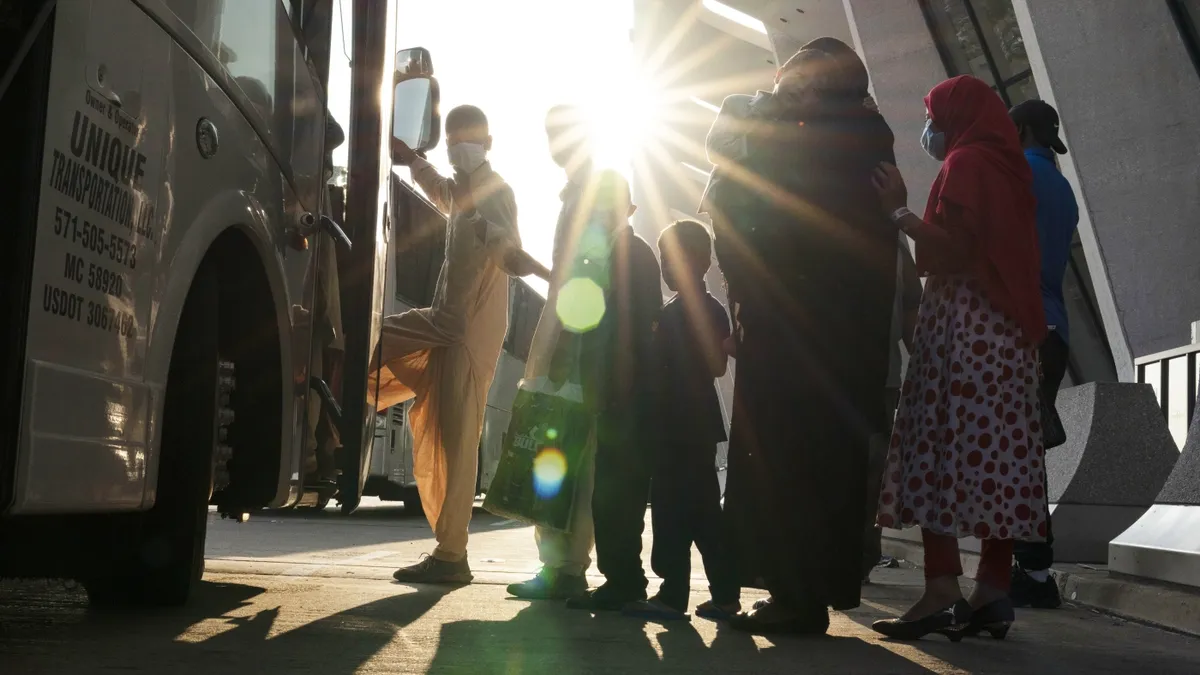
As many as 9,000 Afghan refugees are facing the threat of deportation following the Trump administration's recent decision to terminate the Temporary Protected Status (TPS) that previously allowed them to remain in the United States legally. The White House claims that Afghanistan is now safe enough for refugees to return, a stance that has left many experts and observers bewildered.
Zia Ghafoori, an interpreter who worked alongside U.S. Army Special Forces from 2002 to 2014, expressed deep concerns about the implications of this policy change. Ghafoori, who was honored by President Trump during a visit to the White House in 2019 and became a U.S. citizen in 2020, stated, "It's a death penalty for them if they return." He emphasized that many Afghan allies, including his own family members who were set to travel to the U.S., are now living in a state of uncertainty and distress due to their immigration status.
The termination of TPS for Afghans is part of a broader plan by the Trump administration to realign the United States refugee admissions program. This change coincided with the administration's recent acceptance of white South African refugees, raising questions about the motivations behind these policies. In a statement, Homeland Security Secretary Kristi Noem claimed that the conditions in Afghanistan have improved, asserting that the country no longer meets the criteria for TPS designation.
Many advocates and veterans have condemned this decision as a betrayal of the U.S. commitments to those who assisted American forces during the war. Jack McCain, a veteran of the Afghan war and son of the late Senator John McCain, stated, "To our Afghan allies, you are not alone, you are not forgotten." He highlighted the severe risks that Afghan allies now face, including the potential for deportation and even death upon their return.
Bill Frelick from Human Rights Watch criticized the revocation of TPS, calling it a betrayal of U.S. commitments. He argued that the only justification for ending temporary protections would be if permanent residency options were being made available, especially given the dangerous conditions under Taliban rule. Questions have also been raised regarding the sources of information used by the Department of Homeland Security to support its claims about improved safety in Afghanistan.
Veterans of the post-9/11 conflicts have emerged as vocal advocates for Afghan refugees, emphasizing the moral obligation to protect those who risked their lives in support of U.S. military operations. Notably, some Republican figures who previously criticized the Biden administration's withdrawal from Afghanistan are now expressing disapproval of Trump's approach. Bradley Bowman, a veteran and expert at the Foundation for Defense of Democracies, stated, "Deporting Afghans who bravely helped us would be Trump's catastrophe," labeling the move as immoral and detrimental to U.S. national security.
In response to the termination of TPS for Afghan refugees, the immigration advocacy group CASA has filed a lawsuit against the Trump administration. This legal action coincides with the administration's decision to accept white South Africans as refugees, a move that has been criticized as racially motivated. Democratic Representative Seth Moulton, a Marine combat veteran, highlighted the stark contrast in these policies, calling the situation a "textbook betrayal" of those who served alongside U.S. forces.
As the debate around TPS for Afghan refugees continues, the future remains uncertain for those who risked their lives for the United States, now facing the grim possibility of deportation amidst ongoing violence and instability in their home country.